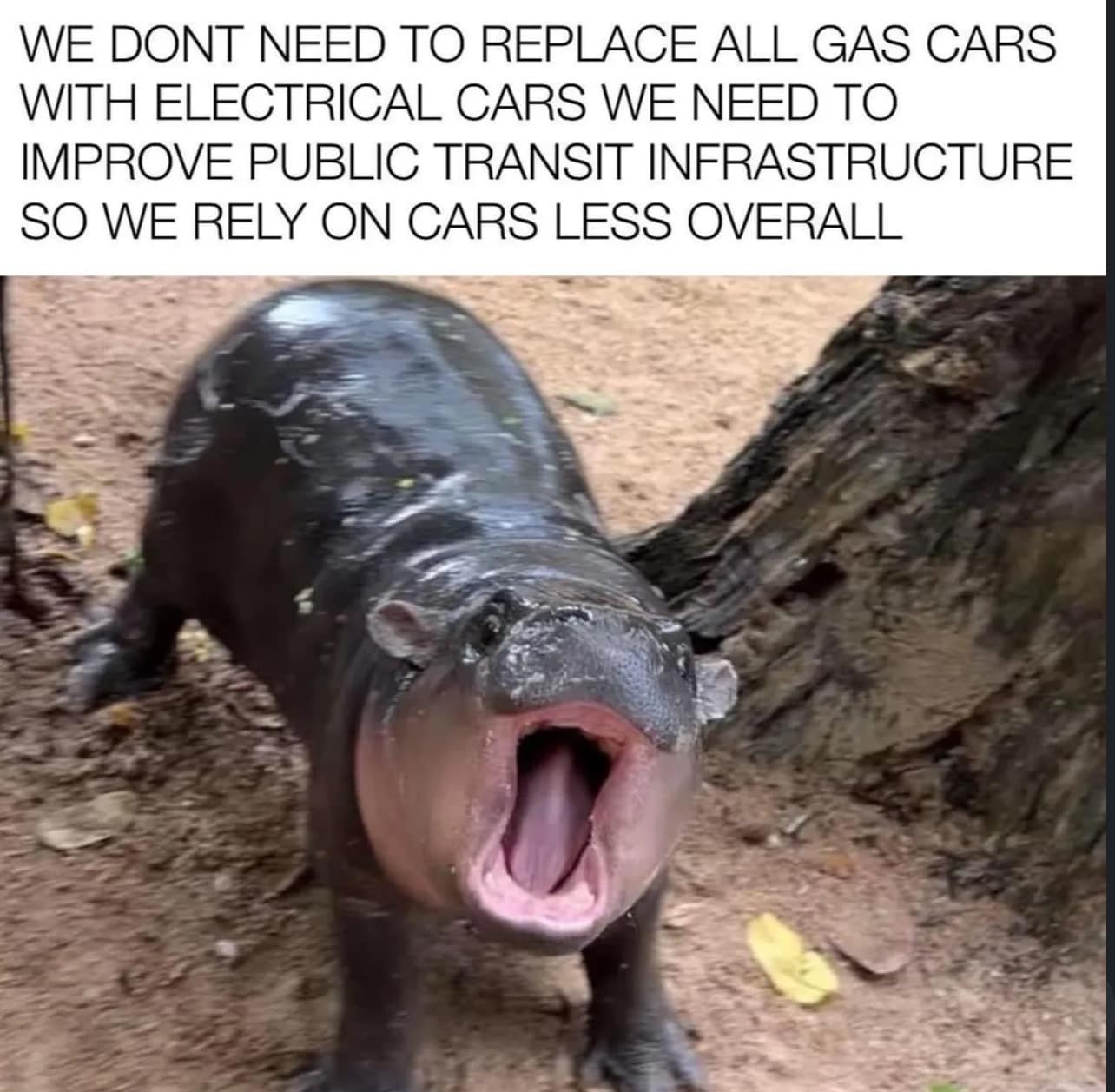Fuck Cars
A place to discuss problems of car centric infrastructure or how it hurts us all. Let's explore the bad world of Cars!
Rules
1. Be Civil
You may not agree on ideas, but please do not be needlessly rude or insulting to other people in this community.
2. No hate speech
Don't discriminate or disparage people on the basis of sex, gender, race, ethnicity, nationality, religion, or sexuality.
3. Don't harass people
Don't follow people you disagree with into multiple threads or into PMs to insult, disparage, or otherwise attack them. And certainly don't doxx any non-public figures.
4. Stay on topic
This community is about cars, their externalities in society, car-dependency, and solutions to these.
5. No reposts
Do not repost content that has already been posted in this community.
Moderator discretion will be used to judge reports with regard to the above rules.
Posting Guidelines
In the absence of a flair system on lemmy yet, let’s try to make it easier to scan through posts by type in here by using tags:
- [meta] for discussions/suggestions about this community itself
- [article] for news articles
- [blog] for any blog-style content
- [video] for video resources
- [academic] for academic studies and sources
- [discussion] for text post questions, rants, and/or discussions
- [meme] for memes
- [image] for any non-meme images
- [misc] for anything that doesn’t fall cleanly into any of the other categories
Recommended communities:
view the rest of the comments

You're kind of right that GDP is strictly a measure of economic productivity, and a lot of people look at it to represent a lot of other things like the size of the economy, the health of the economy, how well citizens are doing, etc.
However, you are dead wrong on this point:
It's possible that, you've "increased the GDP without actually doing anything" if you're each not doing anything actually useful (see the broken window fallacy). However, in most case, each of those steps resulted in a useful service or product.
I dunno if I'd say that, really. "useful service or product" is inferring a lot about the context in which these transactions are done, it doesn't really open up the box, there. Is gambling a useful service to have access to, for instance? What about, say, setting everyone about buying a big suburban house, a car, running out a ton of asphalt to these places, putting out utilities to them that are both financially insolvent in the abstract and also take up too many resources for what they are? Like, I dunno, if we're considering the alternatives, there, which incur much less consumption, and thus, much less trade, the alternatives that cost a whole lot less, I would say that the idea that this is a useful measurement really at all begins to totally fall apart. I dunno. I maybe wonder if, say, free healthcare might be thought to decrease the GDP of a country simply because less money is being thrown around.